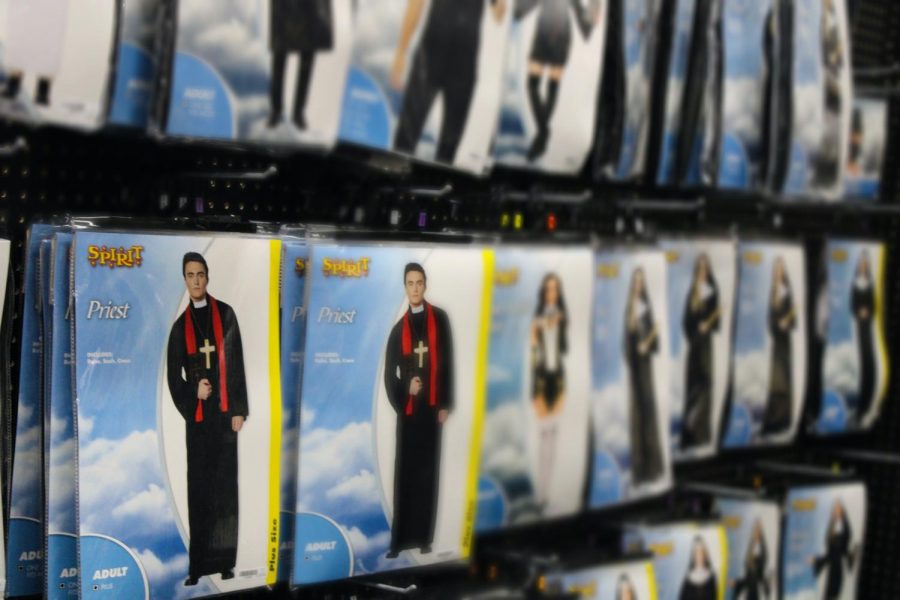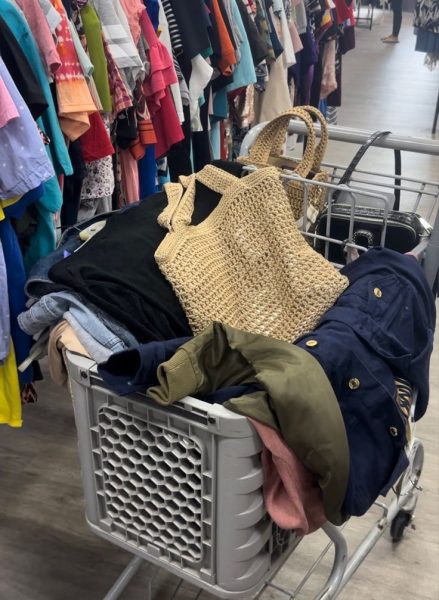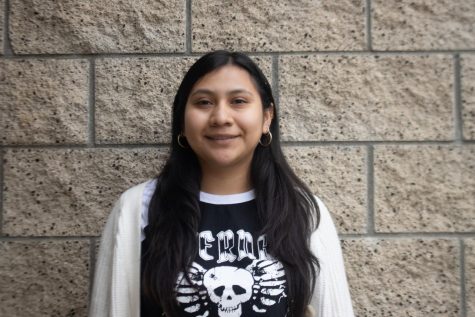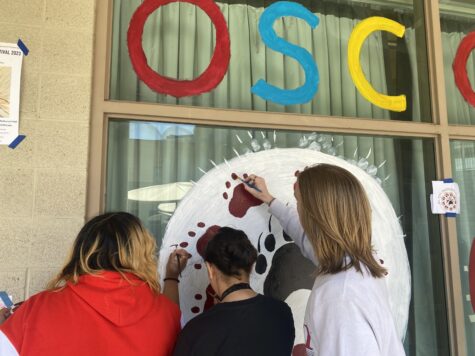Be creative and not offensive: Why you shouldn’t wear culturally appropriating Halloween costumes
Many Halloween costumes represent different cultures in stereotypical or provocative ways. Dressing up as someone else’s culture is distasteful and not of the Halloween spirit.
Photo by Kenzi Holmes
When picking out a costume, it is your responsibility to stay mindful with what you represent on Halloween night.
The leaves are changing colors, the air is getting chillier, and pumpkins are outside of every grocery store in sight. You know what that means: Halloween season is here! It’s time to put up fake spiderwebs and break out all the horror movie DVDs you still have, and to take this yearly reminder not to wear offensive or culturally appropriating costumes this Halloween.
“As a growing generation we need to start calling out the truth about how when Halloween comes around it does not mean it’s ‘I’m gonna dress up as another race day’ or even how ignorant/offensive costumes are when they sexualize Native Americans whey they are people who have suffered for ages and continue to this day. There are hundreds of costumes that do not relate to a specific race yet people still want to continue to wear offensive costumes. It’s disappointing,” Camila Bernal (12) said.
Every year when you walk into a Spirit Halloween or Party City, you’ll be greeted with hundreds of options for costumes. Among them, you’re more than likely going to see a sensual geisha or Indian princess. Please don’t wear these costumes. Wearing another person’s culture as a costume can be extremely disrespectful, and is in bad taste in general.
“I find [these costumes] to be in bad taste because of the blatant cultural appropriation and overall disrespect for the cultures and peoples they represent. The most harmful part of these costumes is the perpetuation of the stigmas and stereotypes that precede these cultures, promoting biases and the trivialization of marginalized groups. They personally affect me in that as an Asian girl, I find traditional Asian wear that’s been gentrified and made ‘sexy’ to be objectifying as it furthers the fetishization of Asian women,” Mckayla David (12) said.
There is a fine line between cultural appreciation and appropriation, and every Halloween there’s always a few people who walk that line like a tightrope in their caricatured outfits of a certain culture. Listen: If you are wearing a costume of a geisha because you appreciate and respect the culture surrounding it, go ahead! But if you’re dressed up as an “indian princess” as a gimmick, reevaluate your decisions. If you think you’re appreciating a culture, think about how exactly you are doing so. Are you wearing that kimono because you think it’s beautiful, and the art behind it is fascinating? Or are you wearing it because you want to make offensive and harmful jokes later? Recognize what parts of that costume can be offensive, and evaluate why you want to wear that costume.
“The line of appreciation versus appropriation is usually easy to find. The best way to figure out where the costume stands is to do your research. Ensuring it is not a ceremonial type of dress or anything around that allows you to express your love for a culture respectfully. Most of all, use common sense! If it seems offensive, it probably is. Other cultures are not for you to pick and choose from, be respectful,” Isabella Counts (11) said.
Moral of the story? Don’t use Halloween as an opportunity to make a caricature or mockery of someone’s race, culture, religion, etc. Don’t be that guy at the Halloween party who makes everyone uncomfortable, and don’t be the guy who takes this lively holiday and turns it into a weapon. Wear something funny and be creative! Be a Minion for all we care, just don’t be offensive this spooky season.

(She/Her) Avery Huffer is a senior at Mission Hills High School, and this is her first year as a staff writer with the Silvertip. She hopes that during...

(She/Her) Kenzi Holmes is a Sophomore who is a brand new staff member at the Silvertip who joined in 2020. Kenzi believes that the students at Mission...












Beth McNalley • Oct 22, 2020 at 5:02 pm
Timely and helpful reminders – thank you!
Ariana Jorden • Oct 21, 2020 at 1:04 pm
Great article! I completely agree, it’s always so frustrating to walk around a store or scroll on Party City’s website trying to find a Halloween costume and see costumes that are mocking something like a religion or career. It is especially frustrating as a female to see costumes that are made with the intention of showing off a woman’s body in an obscene way. Halloween is meant to be fun and not to tear each other down or turn someone into a joke.
Lilly Brown • Oct 20, 2020 at 12:57 pm
This is super important! Thank you for explaining this so clearly!